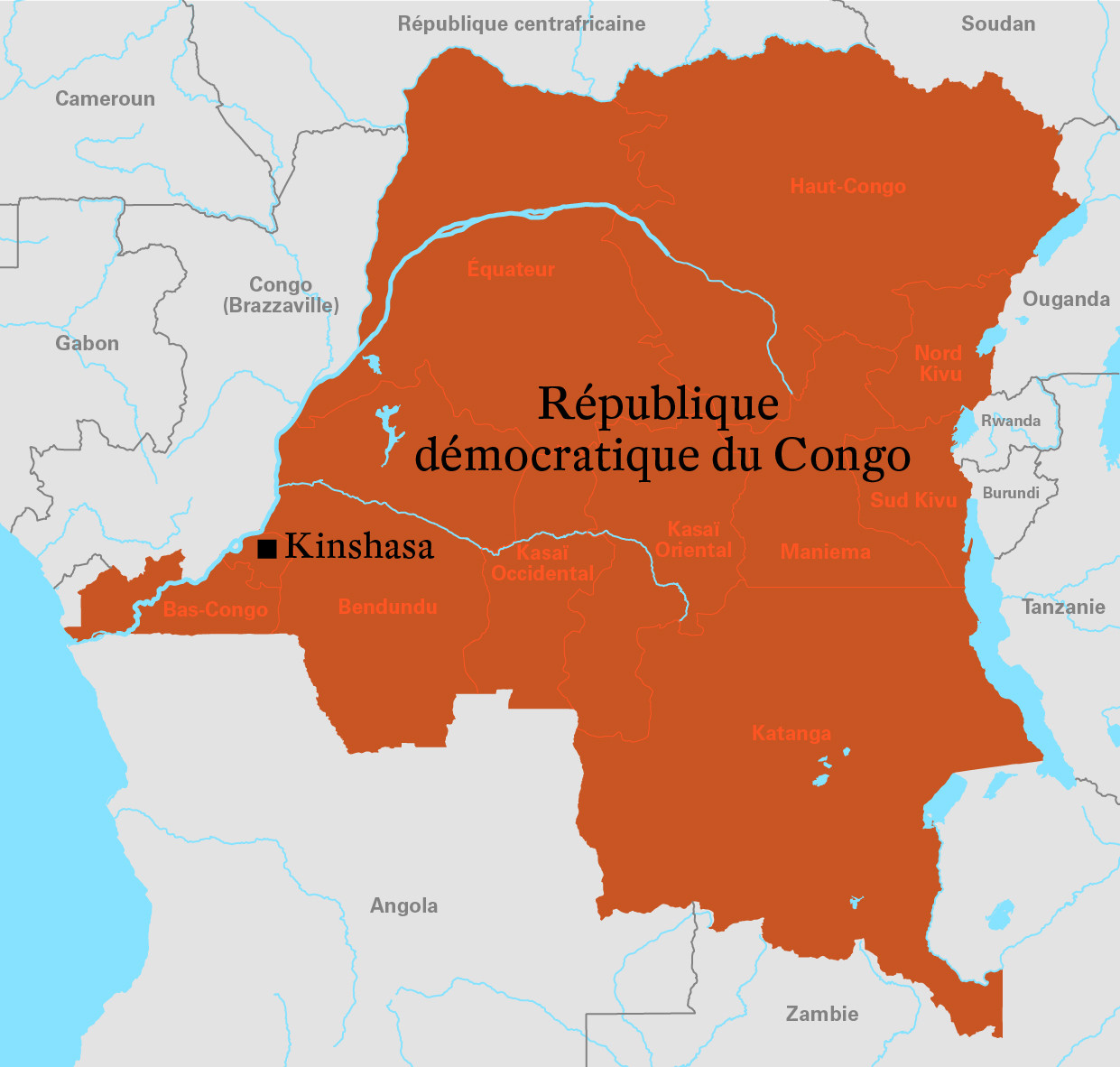

The Democratic Republic of Congo—known as Zaire between 1971 and 1997 and now called DRC, Congo-Kinshasa or DR Congo—is the second-largest country and fourth most populous country in Africa, as well as a leading French-speaking nation.
It has weathered a dark and convulsive history since its independence in 1960, long after Belgian King Leopold II appropriated the territory. There has been the assassination of Patrice Lumumba, the bloody power grab by Mobutu Sese Seko, the corrupt, inept and endless dictatorship of “Papa Maréchal”, an almost permanent state of war between 1996 and 2005 (more than 5 million dead), with miscellaneous guerrillas, rebellions and banditry ever since, mainly in the north and north-east. All this has been against a backdrop of immense widespread poverty and the often illegal grabbing of equally immense lands and resources: in 2018, the DRC was classified 176th out of 200 countries by the human development index of the UNDP (United Nations Development Program).
But since Félix Tshisekedi was elected president in December 2018, demarcating the first democratic transition in the history of the republic, hope has emerged both in Kinshasa as in the rest of the world. Real political stability and security, effective preservation and control of the country’s natural and mineral resources, and equitable reconstruction of the economy, infrastructures and health system seem to have been instated.
The tasks, barely begun, are proportional to the size of the country and its river.
While the Congo holds more than 50% of Africa’s water reserves, only 30% of its population has direct access to drinking water and 8% to electricity. Of its 58,000 km of roads, only 3,126 were asphalted in 2018. Malnutrition and endemic diseases such as malaria, AIDS or Ebola (which has just killed 2,000 more people) are deadlier than the violence, which is just as endemic, affecting villagers in the fields, guards in the nature reserves, and women everywhere. Another essential task is to further access to information. While the DRC has at least 450 radio stations (representing the principal media), as many print publications (but with very low circulation rates) and 135 TV channels (mostly for entertainment), less than 5% of the 95 million Congolese have Internet access. The Congo ranks 149th in the 2021 Reporters Without Borders World Press Freedom Index.
But in Kinshasa, as in the other big cities, journalists, writers, local correspondents, photoreporters and videoreporters are doing their jobs as best they can, under appallingly precarious conditions. The Covid-19 pandemic, which closed the borders, immobilized people and dealt a terrible blow to a massively parallel economy. The Carmignac Foundation thus provides a unique opportunity for these professionals to share their voices and images of a magnificent country. It is filled with misfortune but also with wealth and hope, since two-thirds of the inhabitants are less than 20 years old.
